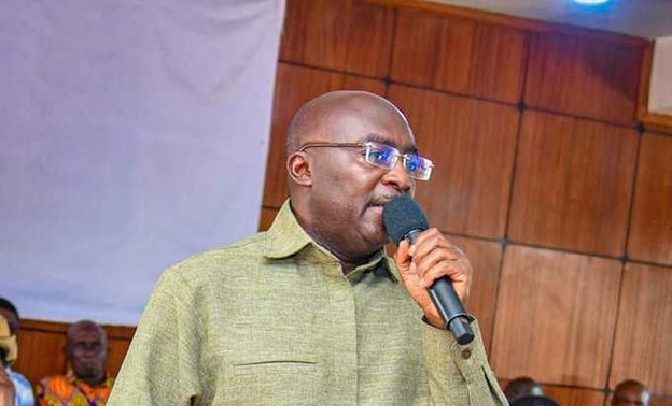Dr Mahamudu Bawumia
Vice President Bawumia has resurrected the controversial issue about road tolls in the country.
Government suspended road tolls across the country following a hullabaloo it generated over needless traffic delays it caused to road users.
The issue subsequently generated a debate on the prudence of the decision considering the revenue it generated for government, but eventually died out after weeks of back and forth.
But, Dr. Bawumia, who is the flagbearer of the New Patriotic Party (NPP), thinks it deserves a holistic approach and must thus be brought to the front burner even though a thorny one.
Speaking at the launch of the 50th anniversary celebration of the Ghana Highway Authority (GHA) in Accra, on the theme, “Closing the Financing Gap in Road Infrastructure Development in Ghana”, he called for a broad-based approach in the country’s road tolling system, to generate sufficient revenue to finance road infrastructural development.
As it were before its suspension, he was of the belief that there was, and still remains, an inequity in the existing road tolling system which puts a lot of burden on few citizens.
He could not comprehend why, for instance, people living in first class communities like East Legon, Cantonments with good road infrastructure are equally not tolled like those living in Ashaiman and Kasoa with poor road infrastructure.
“The current architecture that we have in tolling really tend to exclude even the wealthier part of the population, so if I live in Cantonment, East Legon, Ridge which are the high-end neighbourhoods, I will not see a toll, but if I live at Kasoa or somewhere else, I am likely to meet a toll,” was how he put it, insisting “there seems to be an inequity in tolling and I believe that we should look at broad-based tolls.”
He, therefore, believes adopting digitalisation may capture more people into the country’s road tolling system.
The panel discussion is aimed at finding innovative and strategic ways of funding the country’s road network, instead of relying solely on government funding.
The Vice President also underscored the need for public-private partnerships in securing funding for the country’s road network.
He said soliciting private sector funding for road infrastructure was critical in relieving government of the burden of solely funding road projects.
“Our government is determined to close the financing gap through a multipurpose approach and wish to propose policy initiatives to address some of the identified challenges,” he stated.
Dr. Bawumia highlighted the importance of the country’s road transport network, noting that it facilitated the movement of over 90% of goods and people across the country.
“Our government recognises the critical role that road infrastructure plays in our national development agenda.
“We are committed to ensuring that our road network supports our economic ambitions, enhances the quality of life for our citizens, and leaves a legacy for future generations,” Bawumia emphasised.
However, he said, the current funding levels only covered about 38% of the requirements, thus, leaving a significant shortfall.
Globally, the situation is similar. For instance, the African Development Bank reports a continental infrastructure financing gap of between $68 billion and $108 billion annually.
The staggering figure underscores the importance of innovative solutions and strategic partnerships.
Under the leadership of the Akufo-Addo administration, Dr. Bawumia stated that it prioritised infrastructure development as a cornerstone of the country’s economic strategy.
“We have made significant strides in expanding and improving our road network, yet we acknowledge that more needs to be done. Our government is determined to close the financing gap through a multipronged approach,” the Vice President added.
To foster successful partnerships in road financing, Dr. Bawumia said, it was essential to build strong relationships with construction firms, engineering companies, and technology innovators who could provide both financial support and valuable expertise.
He stated that the government had taken proactive steps to create an enabling environment for public-private partnerships.
“It includes streamlining regulatory processes and offering incentives to attract private investment. We believe that by working hand in hand with the private sector, we can accelerate our infrastructure development goals,” he added.
The Vice President was of the belief that exploring innovative financing models was essential to generating sustainable revenue streams to deal with the road financing gap.
By Charles Takyi-Boadu, Presidential Correspondent


